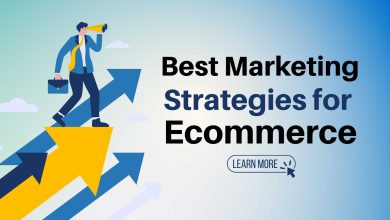Affiliate Marketing vs eCommerce : Which Is Better in 2025 ?
Affiliate Marketing vs eCommerce : In the ever-evolving digital ecosystem, affiliate marketing and eCommerce stand out as two of the most dominant ways to earn money online. Whether you’re a digital nomad, content creator, or aspiring entrepreneur, deciding between these two models is a major step toward building a sustainable online income.
Table of Contents
This comprehensive guide will help you understand the key differences, pros and cons, investment levels, earning potential, and trends that define affiliate marketing and eCommerce in 2025.
🔶 What Is Affiliate Marketing in 2025?

Affiliate marketing is a performance-based business model where individuals promote third-party products or services and earn a commission for every sale or lead they generate. In 2025, this model has matured with the support of advanced AI tools, data-driven marketing, and social media monetization. Influencers, bloggers, YouTubers, and niche website owners use affiliate links, funnels, and email campaigns to drive passive income streams.
🔶 What Is eCommerce in 2025?
eCommerce involves selling products or services directly to consumers online. In 2025, it includes everything from dropshipping and print-on-demand to private label and subscription models.
Also Read : What Is Reverse Dropshipping ?
With powerful platforms like Shopify, WooCommerce, and BigCommerce, and marketplaces such as Amazon, Flipkart, and Meesho, eCommerce has evolved into a multi-billion-dollar industry where even small sellers can compete globally with the right strategy.
🔶 Investment Requirements: Affiliate Marketing vs eCommerce
Affiliate Marketing
This model is ideal for beginners due to its low startup cost. All you need is a basic website or a strong presence on social platforms. You don’t have to invest in inventory, packaging, or logistics. Many affiliates start earning using free organic traffic methods like SEO, YouTube videos, or blogging.
eCommerce
Starting an eCommerce business usually demands a significant upfront investment. You need to spend on website development, product sourcing, inventory, advertising, and customer service. Dropshipping lowers the barrier but still involves costs in advertising and setting up operations.
🔶 Revenue Potential and Profit Margins in 2025
Affiliate Marketing
The income depends on the affiliate programs you choose. Commissions range from 5% to 50%, with recurring programs offering monthly passive income. In 2025, high-ticket affiliate programs and SaaS tools offer affiliates thousands of dollars per month with minimal maintenance.
eCommerce
Since you own the products and control pricing, your potential profit margins are higher. Brands can expect 25–60% margins, especially with digital products or exclusive goods. You can also scale quickly with upselling, cross-selling, and repeat customers.
🔶 Ownership and Brand Control
Affiliate Marketing
You promote someone else’s product. This means you don’t control product quality, branding, or customer experience. While it’s easier, your business heavily depends on the policies of the affiliate program provider.
eCommerce
You own everything — brand identity, customer relationships, and product delivery. This allows you to create a unique customer experience and build a long-term brand asset that can be sold in the future.
🔶 Risk and Responsibility
Affiliate Marketing
It’s a low-risk model. You don’t deal with product returns, angry customers, or legal compliance related to products. If one product underperforms, you can quickly shift to another.
eCommerce
This model comes with more responsibilities. You need to handle refunds, returns, customer satisfaction, and logistics. A failed product launch or supplier issue can impact your entire business.
🔶 Time and Operational Effort
Affiliate Marketing
Affiliate marketing is more hands-off once your system is in place. After publishing SEO-optimized blog posts or videos, your content can bring in leads for months or years with minor updates.
eCommerce
Running an eCommerce store demands daily attention. From processing orders, managing stock, customer inquiries, and marketing, it is time-consuming unless you invest in automation and team members.
🔶 Scaling Opportunities in 2025
Affiliate Marketing
You can scale by growing your audience, adding new niches, or promoting high-converting products. Advanced strategies like paid ads, email funnels, and affiliate SEO enable rapid growth without needing a large team.
eCommerce
eCommerce has a higher ceiling for growth. You can introduce new product lines, go international, or sell on multiple platforms. Tools like AI-driven personalization, subscription boxes, and customer retention strategies enhance your ability to scale.
🔶 Tools and Platforms for 2025
Affiliate Marketing Tools
- WordPress + ThirstyAffiliates / Pretty Links
- Systeme.io / ClickFunnels for funnels
- Ahrefs / SEMrush for SEO
- G Analytics + Tag Manager
- YouTube, Insta, and TikTok for content-driven traffic
eCommerce Tools
- Shopify, WooCommerce, Magento
- Oberlo, Spocket for dropshipping
- Klaviyo, Mailchimp for email marketing
- Razorpay, PayPal, Stripe for payments
- Zoho Desk, Freshdesk for customer support
🔶 Passive Income Potential

Affiliate Marketing
If you build SEO-friendly blogs, niche websites, or evergreen YouTube content, you can create long-term passive income. Recurring affiliate programs add a stable income month after month without additional work.
eCommerce
Passive income in eCommerce is possible via automated fulfillment centers, dropshipping, or subscription models. However, maintaining consistency in product quality and service requires ongoing monitoring.
🔶 Current Trends Shaping Affiliate Marketing and eCommerce in 2025
- AI Content Creation & Automation: Tools like Jasper and ChatGPT help affiliates and store owners scale content and operations fast.
- Influencer-Led Commerce: Social selling is at its peak. Reels, shorts, and livestream shopping drive massive sales in both models.
- Voice Commerce and Smart Devices: Voice-based product discovery is rising — optimizing for Alexa and G Assistant is now essential.
- Eco-Conscious Consumers: Consumers prefer ethical, green products. eCommerce brands with sustainability promises get more traction, while affiliates promoting such brands earn higher trust.
- Mobile-First Optimization: In 2025, 85% of online traffic is mobile. Both business models must focus on mobile-friendly UI/UX, AMP pages, and app integration.
🔶 SEO and Traffic Generation Strategies
Affiliate Marketing
SEO is critical. Affiliates focus on long-tail keywords, review posts, YouTube tutorials, and email marketing to attract buyers. Content-rich, niche-focused sites rank better and convert faster.
eCommerce
Traffic is driven through G Shopping, FB & Insta ads, and influencer partnerships. Organic product page SEO, schema markup, and blog content also play vital roles in building visibility.
🔶 Monetization Models Compared
Affiliate Marketing
- Cost-per-sale (CPS)
- Cost-per-lead (CPL)
- Recurring commission
- High-ticket affiliate sales
- Content monetization (ads + affiliate links)
eCommerce
- One-time product sales
- Subscription products
- Digital downloads (eBooks, courses)
- Print-on-demand
- Bundling and upselling strategies
🔶 Customer Support and Logistics
Affiliate Marketing
There is zero customer interaction. Your job is simply to send qualified traffic to the merchant. They handle everything else — including payments, support, and shipping.
eCommerce
You are responsible for end-to-end customer experience. Timely delivery, polite support, refund handling, and post-purchase engagement are critical for long-term growth and brand loyalty.
🔶 Long-Term Business Value and Exit Options
Affiliate Marketing
You can build a niche blog or YouTube channel and sell it for 2x to 3x annual profit. However, valuation may be lower as there’s no product ownership or brand equity involved.
eCommerce
eCommerce brands are valuable assets. With loyal customer bases, owned products, and recurring revenue, stores can be sold for 5x to 10x annual profit on platforms like Empire Flippers or Flippa.
🔶 Quick Summary: Pros and Cons
Affiliate Marketing Pros
- Easy and cheap to start
- No inventory or customer service
- Passive income potential
- Scalable with content
Affiliate Marketing Cons
- No brand control
- Lower profit margins
- Commission changes affect income
- Reliant on external platforms
eCommerce Pros
- Full brand ownership
- Higher profit potential
- Customer data and loyalty
- Long-term asset creation
eCommerce Cons
- High startup cost
- Complex operations
- Inventory and logistics risks
- Requires daily management
🔶 Final Verdict: Which Is Better in 2025?
So, which model should you choose in 2025?
If you’re looking for a low-risk, semi-passive income stream that leverages content and personal branding, affiliate marketing is a fantastic choice. It’s ideal for content creators, bloggers, and influencers who want to monetize their traffic without dealing with operations.
But if you’re ready to build a long-term brand, manage logistics, and scale with paid ads or product innovation, eCommerce offers far greater control, profit, and long-term value. It’s the better choice for entrepreneurs who want to run a full-fledged business and own their customer journey.
Affiliate Marketing vs eCommerce – Conclusion

Both affiliate marketing and eCommerce are powerful income-generating models in 2025. Your ideal path depends on your budget, risk tolerance, technical skills, and long-term goals. Whichever model you choose, success lies in consistency, value-driven content, audience understanding, and smart use of technology.
Buy Now : Ecommerce Website With 100 Products
So the ultimate answer to “Affiliate Marketing vs eCommerce – Which is Better in 2025?” depends on you.
Keywords : Affiliate Marketing vs eCommerce – Affiliate Marketing vs eCommerce 2025



